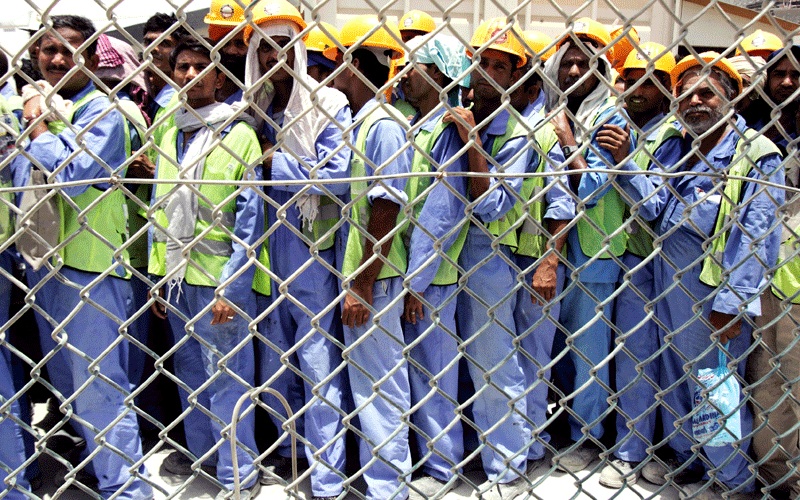When the British left the Arab Gulf in 1971, Dubai was a port of about 250,000 souls. Today, it is the most international of the seven nations that make up the United Arab Emirates and its population has grown by 1000%. Native Dubai Arabs constitute a mere 5% while the 95% majority is made up of workers brought in from around the world to service the booming oil economy. Untold wealth has turned the dusty desert coastal town that lived off fishing and pearl diving into a glitzy global hub for travel, tourism and finance. The human costs of such rapid development are great.
***
Champs of the Camp: A documentary exploring the intimate lives of the men living in Dubai’s labor camps. It features expatriates drawn mainly from the Indian subcontinent who are far removed from the city’s “glistening skyline of fantastical towers they build and from the luxurious lifestyle of the rest of the city.” Director Mahmoud Kaabour provides a rare glimpse of the humanity and towering spirits of Dubai’s migrant workers.
United Arab Emirates: Public Affluence, Private Abuse: This article documents the abuses and exploitation that migrant domestic workers face in the UAE. Although UAE Laws prohibit the use of forced labor, the government failed to investigate or prosecute exploitative working condition perpetuated by the Kafala system. Kafala is a UAE visa-sponsorship system that gives employers de facto ownership of a domestic worker. However, the UAE claims that cases of abuse and exploitation do no reflect the general situation and that many foreign workers benefit immensely from the wages and experiences they gain in the UAE.

